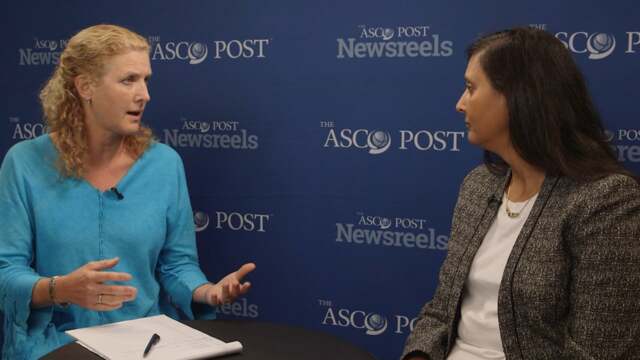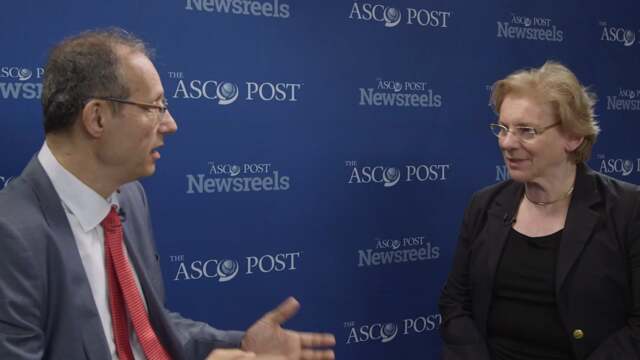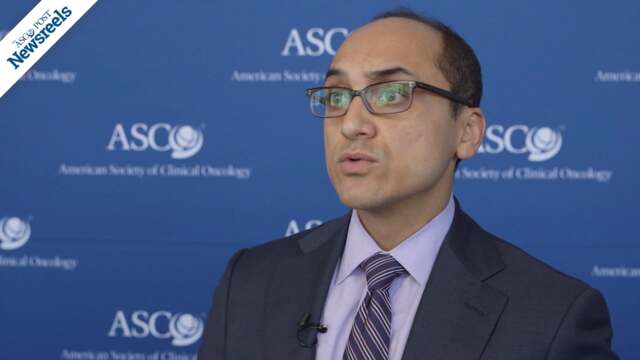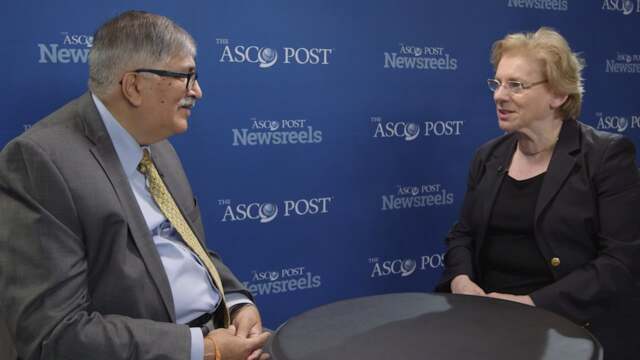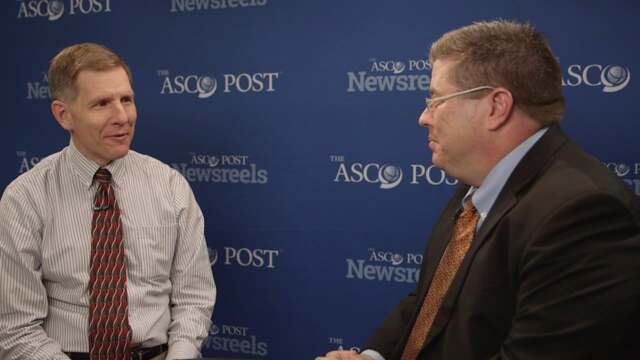Michael J. Overman, MD, and John Marshall, MD, on Metastatic Colorectal Cancer: Interim Results of the CheckMate 142 Trial
2016 ASCO Annual Meeting
Michael J. Overman, MD, of the University of Texas MD Anderson Cancer Center, and John Marshall, MD, of Georgetown University Lombardi Comprehensive Cancer Center, discuss interim findings on nivolumab with or without ipilimumab in the treatment of patients with metastatic colorectal cancer with and without high microsatellite instability (Abstract 3501).
Lisa A. Carey, MD, of the University of North Carolina, and Tuya Pal, MD, of H. Lee Moffitt Cancer Center & Research Institute, discuss the racial disparities in cancer risk management among BRCA carriers across a diverse sample of young black, Hispanic, and non-Hispanic white breast cancer survivors (Abstract LBA1504).
Nagi S. El-Saghir, MD, of the American University of Beirut, and Mary Gospodarowicz, MD, of the Princess Margaret Hospital, discuss oncology from an international point of view.
Yousuf Zafar, MD, of Duke Cancer Institute, summarizes his educational lecture on the financial toxicities of treatment and the need to focus on both short- and long-term interventions to reduce the burden on patients.
Rakesh Chopra, MD, of the Artemis Health Institute, and Mary Gospodarowicz, MD, of Princess Margaret Hospital, discuss oncology from an international point of view.
Anthony J. Olszanski, RPh, MD, of Fox Chase Cancer Center, and Michael A. Davies, MD, PhD, of the University of Texas MD Anderson Cancer Center, discuss this phase III study of dabrafenib plus trametinib vs dabrafenib monotherapy in patients with unresectable or metastatic BRAF V600E/K-mutant cutaneous melanoma (Abstract 9502).
